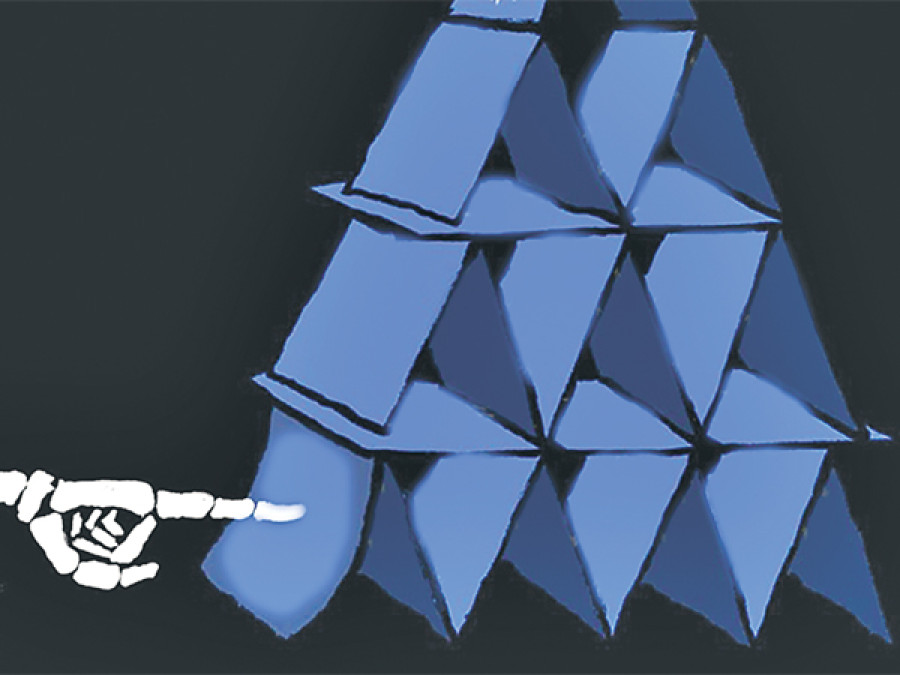Opinion
A time to act
PM Oli cannot afford to be complacent as the country is facing multiple crises
Shyam K.c.
The first post-constitution government has been formed and CPN-UML Chairperson KP Sharma Oli has earned the distinction of being the first head of the government to be guided by the newly written ‘people’s constitution’. The constitution, by itself, cannot bring about the changes and the development that the Nepalis want. For this to happen, we need political foresight and a mature leadership backed by appropriate laws and legislations as well as the support of the people. Even then, the dream of prosperity will be difficult to achieve any time soon. This is because protests against some clauses of the constitution have been going on for over 60 days now in the southern belt of the nation. The Madeshis and the Tharus are up in arms and they want the government to meet their demands.
To add fuel to the fire, the entry of petroleum products from the southern border is still being obstructed under one pretext or the other. The media reports that some tankers and other vehicles carrying petroleum products and other necessities have been allowed to enter Nepal unhindered. But on the very next day, there are reports that the movement of all vehicles at the border has come to a virtual halt. This intolerable suffering was imposed on this country on the eve of the Dashain festival, which is arguably the largest quasi-religious event in the country.
Addressing the current problems and preparing for such future disasters will be the biggest challenge for the new government. There are other challenges such as enacting timely and appropriate laws to keep pace with the present constitution as some of the older laws could be in conflict with the new statute. It looks as though the days ahead for the new PM will be as difficult as climbing Mount Sagarmatha alone, and without oxygen.
Find a solution
So the new prime minister would do this country invaluable service by resolving the current political crisis and ensuring the smooth flow of vehicles carrying essential supplies and petroleum products coming from across the southern border. One cannot keep blaming the Madhesis for the crisis because, as Nepalis, the Madhesis too would not like to see another Nepali, whether Pahades or Madeshis, suffer, especially during festive season. One can, therefore, easily make out that the present crisis is not merely the making of Madhesis but has also been precipitated by external forces. The Oli government’s challenge will be to amicably resolve the crisis and ensure the smooth flow of such supplies as soon as possible. The very fact that the country is even running short of medicines points to the urgency of the situation as well as to the criminal intent of the perpetrators.
As far as Nepal is concerned, its southern neighbour has used blockade as a weapon from time to time to bring this country to its knees. That such a tactics can be used even in the 21st century only goes on to show how ill-equipped our leaders have been at coming up with a long-term solution to such a contingency. Likewise, the need for Nepal to diversify its trade and sources of imports is known to all, but very few have attempted to do anything about it in a manner that could have prevented the kind of crisis we are now currently experiencing from ever recurring. The ability to handle the situation requires inputs from experts in different areas such as economics, politics, foreign affairs and trade.
No room for complacency
Today’s world is interdependent and we cannot do without the goodwill of our neighbours. Still, Nepal needs to learn to be less dependent on both India and China. For, when it comes to securing national interests, even the best of neighbours are likely to sacrifice their friendship with small countries like ours. The Oli government, therefore, has to plan for the future in which dependence on our northern and southern neighbour will be minimal. But this is easier said than done. And hence, the government will need to create think tanks that are neither affiliated with any political party nor beholden to any country directly or indirectly. The advice from such think tanks will be extremely beneficial to the present and future governments in planning for the country’s future. While the government need not implement all advice given by such bodies, their suggestions will undoubtedly help it take necessary political steps to ensure that the country does not face such neighbour-made crisis in the future.
KP Oli was elected prime minister with an overwhelming majority but there is no room for complacency given the state of affairs. Political parties have already begun fighting amongst themselves to acquire the most lucrative ministries. If our political leaders can indulge in such trifle matters even as its country is in deep domestic and geopolitical crisis, it is little wonder that Nepali people are making a mad rush for petrol as if their life depended on it instead of using public transport. Much more needs to be done so that we Nepalis learn to live within our means.




 17.9°C Kathmandu
17.9°C Kathmandu











